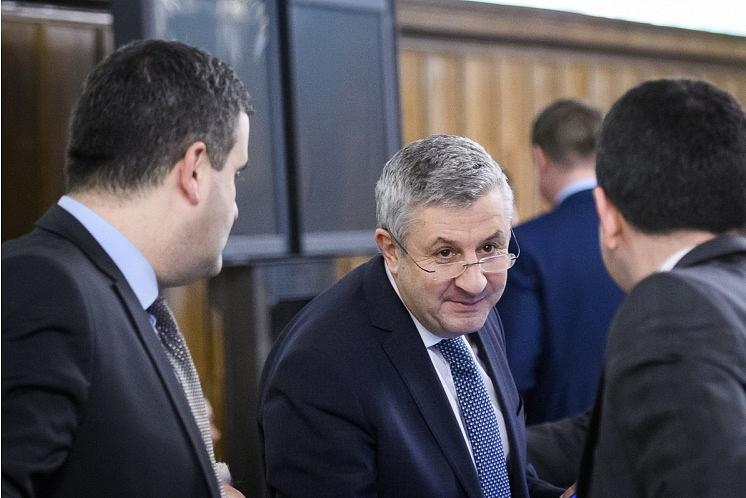Romanian MP sends English presentation of new justice laws to embassies

Romania's Parliament has translated the newly adopted justice laws in English for better understanding by foreign embassies.
Romanian MP Florin Iordache, the president of the Parliament’s special committee for changing the justice laws, sent on Thursday an English presentation of the recently adopted amendments to the foreign embassies in Bucharest, according to local Mediafax.
His gesture comes as a reaction to the critics Romania has received in recent weeks from foreign partners following the changes to the justice laws.
The Embassies of Belgium, Denmark, Finland, France, Germany, the Netherlands and Sweden have requested that the actors involved in the justice reform project should avoid any action that could weaken the independence of the judiciary and ask for the Venice Commission's opinion. The US State Department also urged Romania’s Parliament not to vote any amendments that may weaken the rule of law and the fight against corruption.
Politicians from the ruling coalition parties responded by saying that the foreign officials who reacted against the amendments to the justice laws hadn’t actually read them and were misinformed.
Romanian Senate president: EU embassies’ justice letter could stem from insufficient knowledge
Romania’s ruling coalition leaders say US statement on justice reform “incomprehensible”
Florin Iordache argued in his presentation for embassies that the amendments were adopted to address the problems of the judiciary. Most of the amendments came from the Superior Magistracy Council, or from magistrates’ professional associations, he wrote.
“These amendments to the laws of justice are the first to be carried out in a transparent parliamentary procedure with the involvement of all stakeholders. At present, laws are being tested for constitutionality at the Constitutional Court, as has been the case with previous laws, and all the filters necessary to ensure justice independence are used,” Iordache explained in the presentation.
The current justice laws have allowed too much "interference" of the judges' career with that of prosecutors, their functions overlapping very often in the collective mind, according to Iordache’s presentation.
He also argued that some four in five Romanians want a magistrate’s responsibility, according to several opinion polls.
The full presentation in English is available here. The special committee also translated the three updated laws of justice and published them on the Chamber of Deputies’ website.
Iordache also sent the presentation and the translated laws to the Foreign Affairs Ministry, which should send them to the embassies.
The French Embassy was the first to react to Iordache’s initiative: “The French Embassy in Romania is closely following the developments in the justice reform, including the discussions in the Romanian society, and has its own translation services for this purpose,” the French Embassy told Mediafax.
Romanian prosecutors, judges protest against changes to justice laws
Students in Romania join protests against justice laws changes
editor@romania-insider.com











